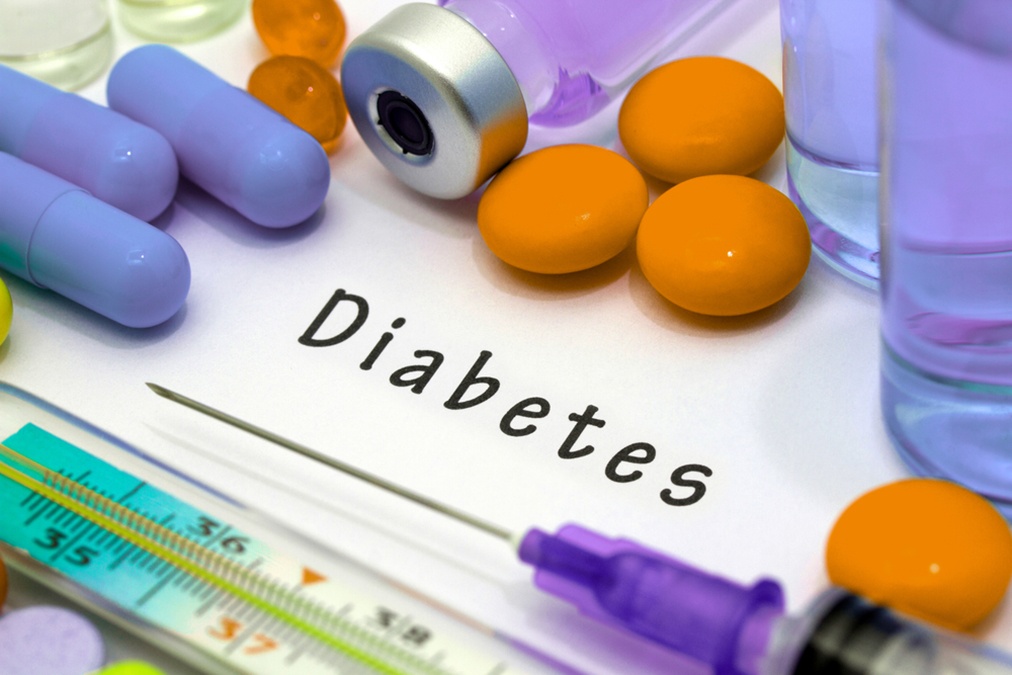 We normally think of type 2 diabetes sufferers as being at the risk of dying from heart attacks, strokes, kidney failure, and other health complications.
We normally think of type 2 diabetes sufferers as being at the risk of dying from heart attacks, strokes, kidney failure, and other health complications.
However, a new study in the European Journal of Endocrinology now shows that diabetics are up to a thousand percent more likely to die of common causes that seem to be completely unrelated to the condition.
The scientist identified 208,148 diabetics from Finnish health registries and matched them with an equal number of healthy people from the general population who roughly matched the first group in age, sex, and residential area.
They observed them for an average of 7.1 years, during which there were 2,832 deaths from alcohol use, 3,187 from accidents, and 853 from suicide.
Compared with their healthy peers, diabetic men on oral medication and on insulin were more likely to die alcohol-related deaths by 71% and 591%, respectively.
Compared with healthy women, female diabetics on oral drugs and on insulin were more likely to die of alcohol by 100% and 962%, respectively.
Among those on insulin, men were 106% and women were 53% more likely to die in accidents than their healthy counterparts were.
Suicides were also 110% more frequent in men treated with insulin and was 62% greater in women.
Why is this the case?
The scientists attributed these problems almost completely to depression and poor mental health, and used previous studies to show that depression was substantially more common in diabetics than in the healthy population.
That is not surprising, if you think about it.
If you have to monitor the effects of everything on your blood sugar levels, such as eating, sleeping, and moving around, your health would always be at the forefront of your mind.
In addition, you would always be worried about serious health complications, like kidney and heart diseases, which would also contribute to the strain.
Furthermore, the fact that type-2 diabetics tend to be out of shape further worsens the mood, as it is well known that exercising and eating healthy has long been proven to help with mood.
Most importantly, this adds to the long list of pre-existing complications and shows yet again, how dangerous type-2 diabetes can be.

 Overcoming IBD
Overcoming IBD Multiple Sclerosis
Multiple Sclerosis Banishing Bronchitis
Banishing Bronchitis Gum Disease Gone
Gum Disease Gone Overcoming Onychomycosis
Overcoming Onychomycosis Neuropathy No More
Neuropathy No More The Prostate Protocol
The Prostate Protocol Brain Booster
Brain Booster
 Ironbound
Ironbound
 Solution for Shingles
Solution for Shingles
 The Bone Density Solution
The Bone Density Solution
 The Ultimate Healing Protocol
The Ultimate Healing Protocol
 The Parkinson's Protocol
The Parkinson's Protocol
 The Chronic Kidney Disease Solution
The Chronic Kidney Disease Solution
 Overthrowing Anxiety
Overthrowing Anxiety The Fatty Liver Solution
The Fatty Liver Solution The Hypothyroidism Solution
The Hypothyroidism Solution
 The End of Gout
The End of Gout The Blood Pressure Program
The Blood Pressure Program
 The Oxigized Cholesterol Strategy
The Oxigized Cholesterol Strategy
 Stop Snoring And Sleep Apnea Program
Stop Snoring And Sleep Apnea Program
 The Arthritis Strategy
The Arthritis Strategy The Vertigo & Dizziness Program
The Vertigo & Dizziness Program The 3-Step Diabetes Strategy
The 3-Step Diabetes Strategy Hemorrhoids Healing Protocol
Hemorrhoids Healing Protocol The Erectile Dysfunction Master
The Erectile Dysfunction Master Weight Loss Breeze
Weight Loss Breeze The IBS Program
The IBS Program The Insomnia Program
The Insomnia Program The Migraine and Headache Program
The Migraine and Headache Program The Neck Pain Solution
The Neck Pain Solution The Menopause Solution
The Menopause Solution The Ejaculation Master
The Ejaculation Master The TMJ Solution
The TMJ Solution The Acid Reflux Solution
The Acid Reflux Solution The Fibromyalgia Solution
The Fibromyalgia Solution The Psoriasis Strategy
The Psoriasis Strategy